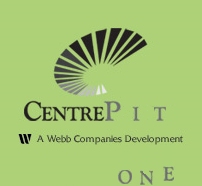There are only two ways to live your life:
One is as if nothing is a miracle;
The other is as if everything is a miracle.
– Albert Einstein
As I see the world through my 2-year-old son’s eyes, I’m constantly reminded of the everyday wonders we sometimes take for granted as adults. I’ve always liked Einstein’s “two ways” quote, and have tried to maintain a child-like amazement at what I encounter in life.
Jaded people (the “nothing is a miracle” people), frankly, bore me to tears. It is far too easy – and lazy – to pretend that you’ve been there and done that, and that there is nothing new or wonderful in the world. Ultimately, that cynical attitude stunts one’s ability to grow, learn, and change. It isolates jaded people from others.
I was talking (debating, really) with a group of business leaders the other day, and it struck me that there is a nearly identical “two way” attitude division in the business world.
The Lazy Way
Some companies approach their business with a cold, calculating, flinty-eyed precision. These companies look at business as a pure numbers game. They often see their customers, suppliers, and employees as opponents or obstacles or dupes to be taken advantage of in their pursuit of the almighty dollar.
They see every relationship as an opportunity to “take” — in fact, “relationship” is seen as a soft, weak, and silly notion which has no place in business. This is the case among executives at my last company.
In their lazy reliance on numbers, such miserly companies manage for the short term, the “quick fix” — “Let’s make a mint before the customer (or employee or supplier) gets wise to us!” Eventually, these companies get so disconnected from customers and employees that the dominant day-to-day focus of the organization is on internal politics and positioning.
From my experience, I can tell you that such shrinking companies are miserable places to work, and they ultimately suffer long, slow, painful deaths as customers and employees flee in droves.
The Generous Way
Other companies adopt a fundamentally different philosophy and approach to their business. They approach business with a spirit of generosity. They see that building long-term relationships with customers, employees, and community creates both financial and human rewards. While the numbers might inform their choices, these companies make decisions based on doing the right thing.
“Doing the right thing” shifts the focus from the financial numbers to the human equation. Doing the right thing isn’t easy. It can be hard work. It isn’t always profitable. “Right thing” companies usually grow more slowly than “quick fix” companies (at first). But they do continue to grow when quick fix companies fade (or implode). They build lasting relationships which sustain them through good times and bad.
The “right thing” companies still pursue profit, but their primary focus is outward: on generous relationships with their customers, their employees, and their communities. They trust that the profit will follow.
These growing, vibrant, connected companies are engaging and rewarding places to work (and to do business with), and they have long-term employees and customers.
Everything is a Miracle
As the economy weakens, many companies have scrambled back to the quick fix of analyzing cold, hard numbers (and charts and plans) and have abandoned their “soft and fuzzy” relationships with people. The numbers make them feel safe and precise and comfortable. But they aren’t any of those things…
They might not know it yet, but they are the walking dead.
The companies who will ultimately thrive in this economy (and who will drive real economic growth) are the ones who continue to connect with their customers, employees, and communities — and who continue to do the right things.
But Albert Einstein could have told you that. My 2-year-old could have told you that. It is just that simple.




